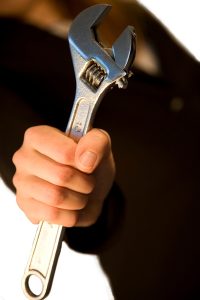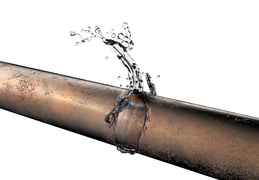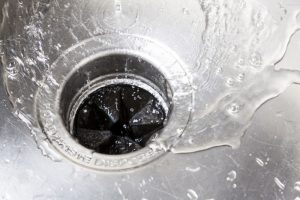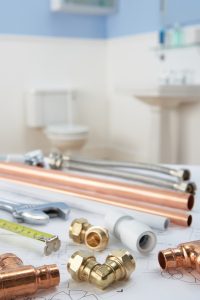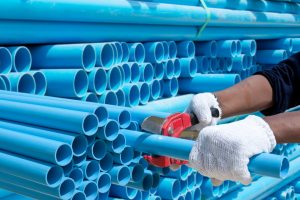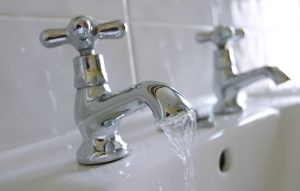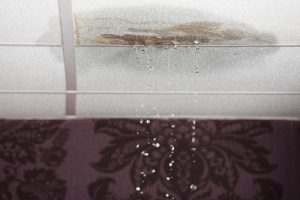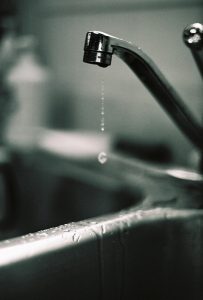When a plumbing issue pops up in your home, it’s tempting to grab a wrench and try to fix it yourself. While a few basic maintenance tasks are perfectly fine for homeowners, many plumbing problems are far more complex than they appear. One wrong move can lead to leaks, water damage, or even code violations that cost thousands to repair. The Peaden Pros want homeowners to know when it’s safe to handle a quick fix—and when it’s time to call in a licensed plumber for professional plumbing repair in Tallahassee, FL.
Not your area? Select your location here:
Select your location to get started:
Not your area? Select your location here:
Select your location to get started:
Peaden Air Conditioning, Plumbing & Electrical Blog: Archive for the ‘Plumbing’ Category
DIY Plumbing Repairs? Please Don’t Try It!
Monday, November 10th, 2025Important Plumbing Prep Before the Holidays
Monday, October 27th, 2025As the holiday season approaches, many homeowners are busy planning menus, decorating, and getting ready to welcome family and friends. But one area that’s often overlooked is the plumbing system. Between extra cooking, dishwashing, laundry, and showers, your pipes and drains will be working overtime. A few simple steps now can prevent holiday headaches later. The Peaden Pros are here to help you get your plumbing in Baldwin County, AL ready for a smooth, stress-free season of celebration.
What Counts as a Plumbing Emergency?
Monday, October 27th, 2025When something goes wrong with your plumbing, it can be hard to tell whether it’s a true emergency or something that can wait until morning. But as many homeowners have learned, hesitation can make a small issue much worse. Water damage, sewer backups, and loss of access to clean water can all escalate quickly. The rule of thumb? If it feels like an emergency, treat it like one. Calling the Peaden Pros for emergency plumbing in Panama City Beach ensures fast response, expert care, and peace of mind when you need it most.
Common Kitchen Plumbing Troubles We Can Fix for You
Monday, September 1st, 2025The kitchen is one of the most important spaces in any Fort Walton Beach home, and it depends on reliable plumbing every single day. From meal prep to cleanup, your sink, faucet, garbage disposal, and water lines all work hard to keep your household running smoothly. When problems arise, they can bring your routine to a halt. That’s where the Peaden Pros come in. Our team handles everything from the most common issues with kitchen plumbing in Fort Walton Beach, FL to the rarest issues you might encounter.
Major Warning Signs You’ve Plumbing Troubles in Your Bathroom
Monday, August 18th, 2025Your bathroom is one of the most used rooms in your Pensacola home, which means it’s also one of the most common places for plumbing issues to develop. While some problems are obvious, others start small and worsen over time, leading to costly repairs if ignored. At Peaden, our skilled plumbers know how to spot trouble early and fix it fast. If you notice any of these warning signs in your bathroom, it’s time to call in the experts.
The New Materials We Use for Repiping
Monday, July 28th, 2025If your home is more than a few decades old, your plumbing system may be overdue for an upgrade. Aging pipes can lead to frequent leaks, low water pressure, water discoloration, and even property damage. At Peaden, we offer expert repiping services designed to replace outdated piping with today’s most durable, efficient materials.
Wondering what materials we use and why they matter? Here’s a closer look at the modern piping solutions Peaden Pros rely on to deliver long-lasting results.
Low Water Pressure in Your Home? It May Be This…
Monday, July 7th, 2025Dealing with weak water flow from your faucets or shower can be more than just annoying—it may indicate a deeper plumbing issue in your home. Whether it’s affecting one fixture or your entire system, low water pressure is a sign that something isn’t right. At Peaden, our experienced Peaden Pros help homeowners get their water pressure back where it belongs with plumbing repair in Lynn Haven and throughout the Gulf Coast.
Here’s a closer look at what might be causing your low water pressure—and when it’s time to call in the professionals.
Small Leaks Are Actually Big Problems!
Monday, June 16th, 2025When it comes to your plumbing in Pensacola, FL, it’s easy to ignore a slow drip or the faint sound of water running behind a wall. But here’s the truth: what seems like a small leak can turn into a big, expensive problem. Our Peaden Pros have seen firsthand how minor plumbing issues can quickly spiral into major damage for local homeowners.
That’s why regular leak detection isn’t just a smart preventative measure. It’s essential to protecting your home, your wallet, and your peace of mind.
Can Low-Flow Fixtures Really Make a Difference for My Home?
Monday, June 2nd, 2025At Peaden, we often get asked whether low-flow fixtures are really worth the investment. Do they make a real difference? Do they sacrifice comfort? Will you even notice a change?
Here’s the honest answer from the Peaden Pros: yes—they absolutely make a difference, and no—you won’t notice a drop in performance. In fact, upgrading to low-flow fixtures in your kitchen and bathroom plumbing in Panama City, FL is one of the easiest ways to reduce water usage, save on monthly bills, and make your home more eco-friendly without sacrificing convenience.
Question: Can Copper Pipes Corrode?
Monday, May 19th, 2025Copper piping has long been considered the gold standard for residential plumbing. Many homeowners in the Florida Panhandle and along the Gulf Coast rely on copper for its durability, longevity, and resistance to corrosion—especially when compared to outdated materials like galvanized steel or cast iron. But does that mean copper piping is invincible?
“It’s copper—it can’t corrode, right?” Unfortunately—not entirely true. While copper piping is indeed superior to many older materials, it’s not immune to wear and tear. Over time, even copper can corrode under the right conditions. Understanding why—and knowing what signs to watch for—can help you protect your home’s plumbing for the long haul and understand when you need repiping in Baldwin County.

